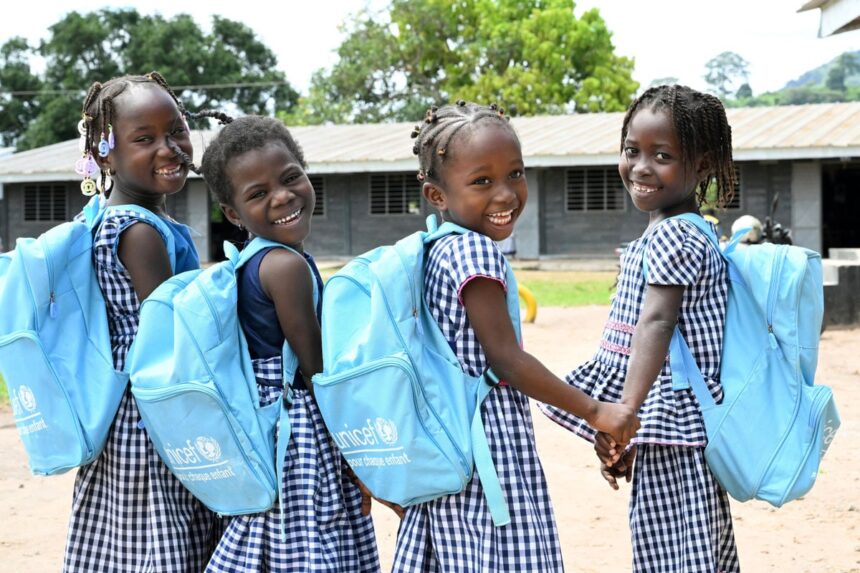Turning 10 years old and not being able to read a simple sentence is a reality for 4 out of 5 children in Africa and a staggering 9 out of 10 children in Sub-Saharan Africa. Foundational learning, which includes basic literacy, numeracy, and socio-emotional skills, is crucial for setting the stage for future learning and success. Children who acquire these skills are more likely to stay in school longer, learn effectively, and reach their full potential.
This pressing issue was the focus of the second annual Foundational Learning Exchange held in Kigali, Rwanda, bringing together Education Ministers from 28 African countries and over 500 education leaders. The event aimed to assess the progress made and the challenges ahead in driving meaningful change in foundational learning.
Investing in foundational learning has the potential to yield significant returns. A mere one-percentage-point increase in public education resources directed towards the poorest 20 percent of students could lift 35 million primary school-aged children out of learning poverty. This investment not only benefits education but also leads to healthier communities, stronger economies, and more inclusive societies.
Despite the immense benefits, challenges persist across Africa, disadvantaging millions of children and perpetuating cycles of poverty and inequality. Addressing these challenges requires urgent collective action from governments and stakeholders, as well as a commitment to scaling proven approaches.
The Global Coalition for Foundational Learning, established in 2022, aims to support countries in accelerating action. The RAPID Framework, developed by the Coalition, outlines key actions needed to improve foundational learning outcomes. To date, 35 countries and 34 organizations have endorsed the Commitment to Action on Foundational Learning, emphasizing evidence-based policies and practical implementation of the RAPID Framework.
To monitor progress, UNICEF and the Hempel Foundation launched the Foundational Learning Action Tracker in 2023. The tracker provides a data-driven approach to identify strides taken and remaining gaps in foundational learning efforts.
While progress is evident in collecting data, using assessment data, and setting benchmarks for literacy and numeracy, gaps remain. Few countries are implementing targeted instruction, and even fewer are taking action on the RAPID 5 interventions critical for supporting foundational learning.
Several countries are leading the way with innovative solutions to bridge the gap in foundational learning. Burundi is building schools to improve access to education, Ghana’s Safe School Program focuses on students’ mental health, and Sierra Leone is implementing systems for regular learning assessments and improving instructional quality.
The Foundational Learning Exchange serves as a crucial platform for government leaders, donors, and development partners to come together, share challenges, and strategize for progress. The event highlights the need for countries to prioritize the most vulnerable children at risk of falling behind in the early grades.
As leaders return home from the Exchange, the focus must shift from commitment to action and from pilot programs to scaling up evidence-based solutions. By ensuring every child in Africa gains the foundational skills they need to thrive, we can pave the way for a brighter future for the continent.
By Conrad Sackey, Minister of Basic and Senior Secondary Education of Sierra Leone; Pia Rebello Britto, Global Director of Education and Adolescent Development, UNICEF; and Anders Holm, Executive Director at the Hempel Foundation.






